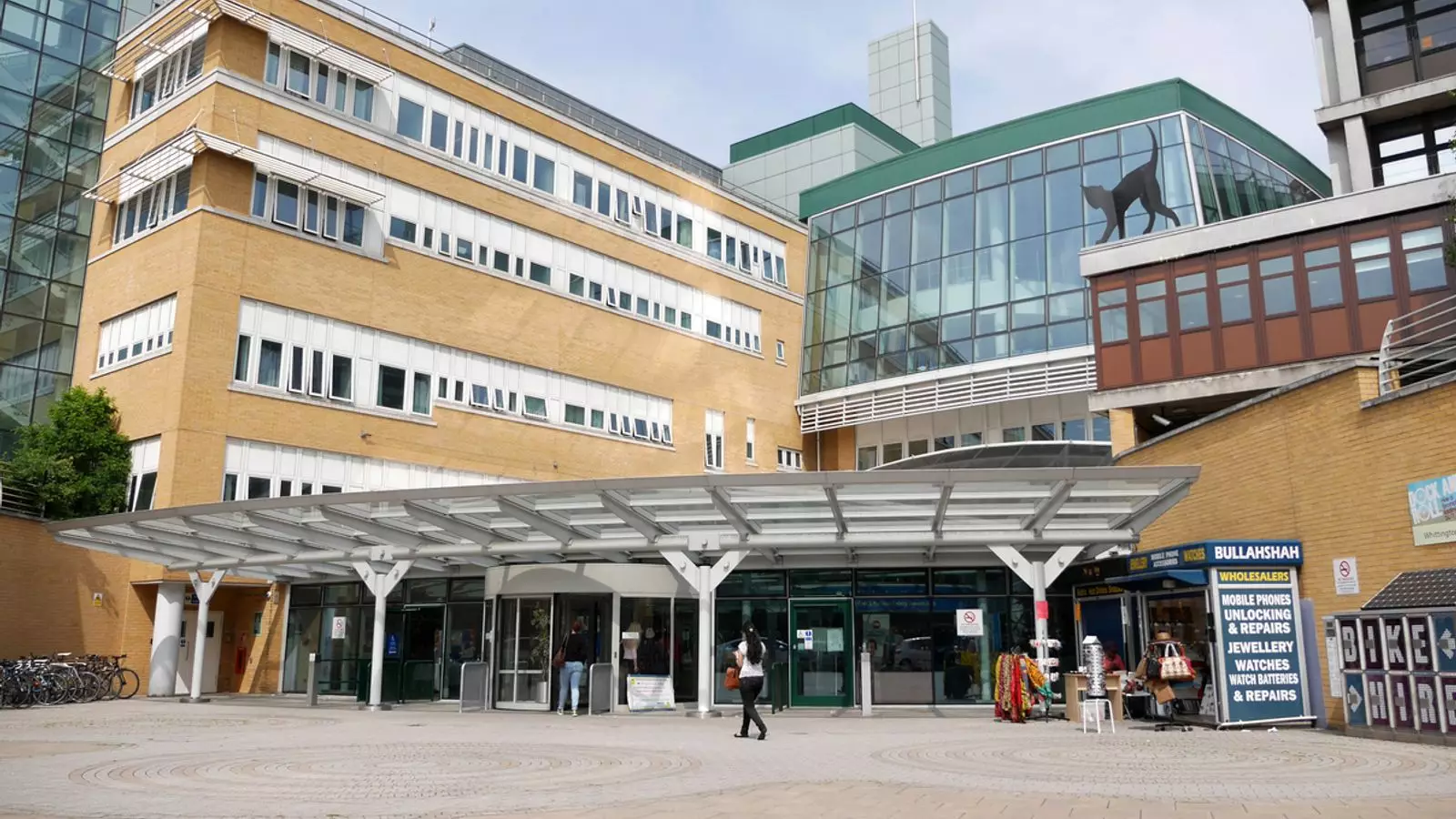The National Health Service (NHS) in the UK is facing one of its most significant crises in recent history as hospitals are overwhelmed with patients, particularly in the winter months. The situation has been exacerbated by what has been termed a “quad-demic,” featuring a surge in cases of flu, COVID-19, norovirus, and respiratory syncytial virus (RSV). A stark reflection of this crisis is the recent job advertisement by Whittington Hospital in North London for a “corridor nurse,” a disturbing indicator that hospitals are resorting to providing care in corridors as patient overflow becomes a daily occurrence.
In recent days, over a dozen hospitals across the country have declared critical incidents, revealing the extent of the crisis that has gripped the NHS. Whittington Hospital, governed by the Whittington Health NHS Trust, has issued a troubling call for registered nurses to attend to patients in corridors, as conventional treatment areas become insufficient. This practice, often referred to as “corridor care,” has been shared widely on social media, sparking significant concern and debates about the acceptability of such measures in modern healthcare.
Despite being labeled a last resort, the necessity for corridor care highlights the strained resources and overwhelming demand on the healthcare system. Organizations like Whittington Health have indicated that sufficient staffing for corridor duty is secured only through temporary arrangements, raising questions about the continuity and quality of patient care under such chaotic circumstances.
In an official statement released to media outlets, Whittington Health acknowledged the significant pressures faced in urgent and emergency departments this winter. The wait for care has increased markedly, causing distress not only for patients but also for their families witnessing the situation unfold. Health Secretary Wes Streeting, when questioned about the job listing during a Jewish Labour conference, expressed his dismay at the normalization of corridor care, describing his own visits to emergency rooms as scenes of chaos, where even he was assured it was a good day given the circumstances.
Further insight into the professional response to this alarming trend has been provided by the Royal College of Emergency Medicine. Ian Higginson, a vice president of the organization, has stated that the idea of “corridor nurses” has regrettably become normalized, revealing the depth of the ongoing crisis in healthcare delivery. Dr. Adrian Boyle, the organization’s president, went a step further, voicing strong opposition to corridor care as being degrading, dehumanizing, and dangerously inadequate for patient safety. His comments spotlight an urgent need for systemic change rather than temporary fixes.
The advent of corridor care signifies not just logistical challenges but also highlights deeper systemic issues within the NHS. The crisis arises from a longstanding underfunding of the healthcare system, which has led to staff shortages, a lack of beds, and insufficient support services. Additionally, a growing elderly population with increasingly complex health needs adds pressure to an already strained system, transforming the healthcare landscape into something akin to a disaster zone during peak winter demand.
As the country grapples with a challenging winter and the consequent strain on hospitals, it is imperative to question the sustainability of the NHS in its current form. The reliance on temporary staffing solutions and the normalization of detrimental care practices such as corridor nursing indicate that immediate action must be taken to bolster the healthcare infrastructure.
The reference to “corridor care” should serve as a wake-up call, not just for those who manage healthcare services, but for society as a whole. It illuminates the urgent need for reform, addressing staffing shortages, increasing budget allocations for healthcare, and properly supporting NHS staff who are grappling with impossible workloads. A healthcare system that relegates care to corridors has become untenable and demands immediate attention.
As we face increasingly severe healthcare challenges, we must advocate not just for survival but for a healthcare system that values dignity, resilience, and compassion. The current circumstances are unacceptable, and it is incumbent upon all stakeholders to envision a future where patients receive care where it truly belongs—in the safety and comfort of dedicated treatment spaces.


Leave a Reply